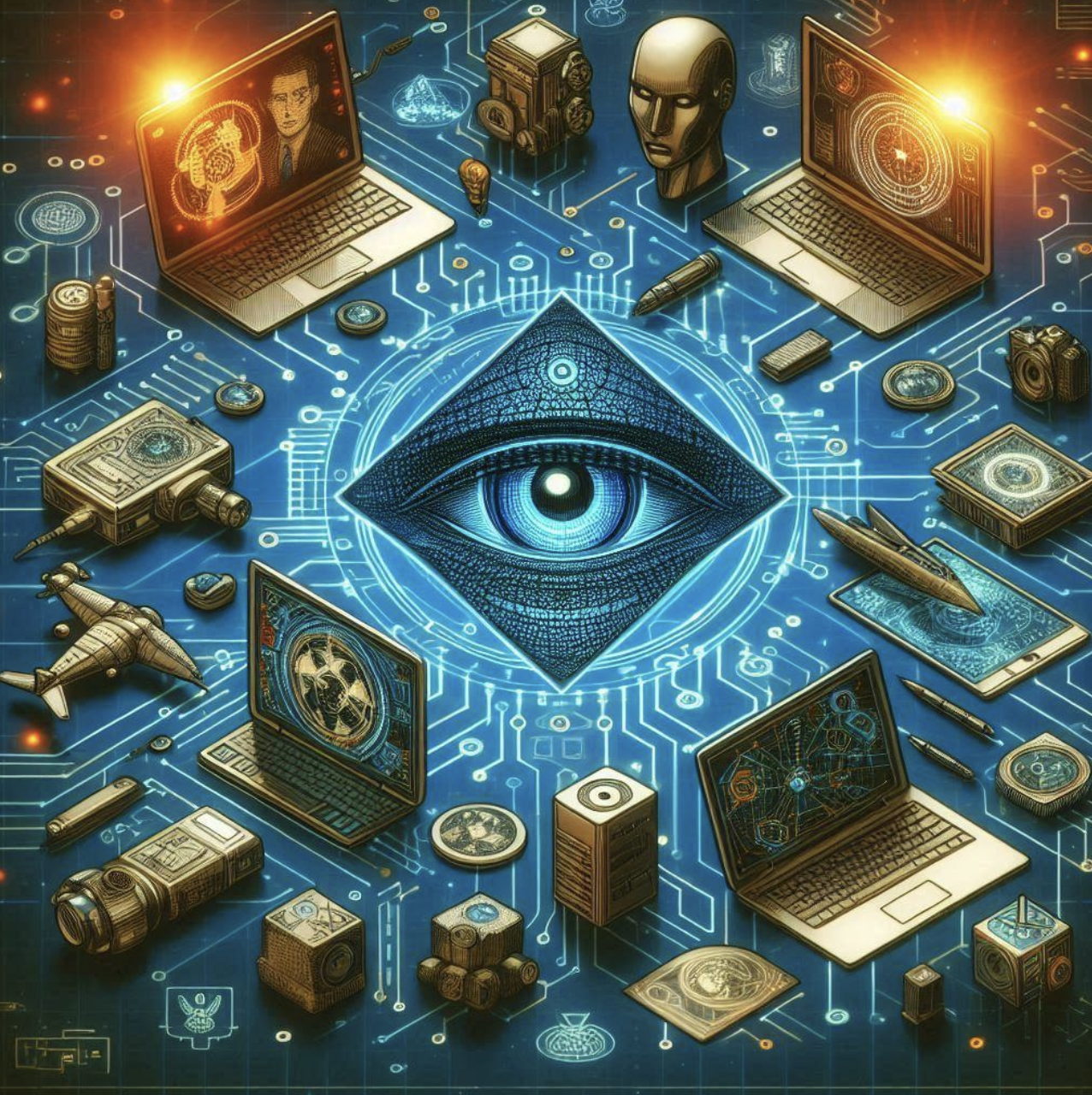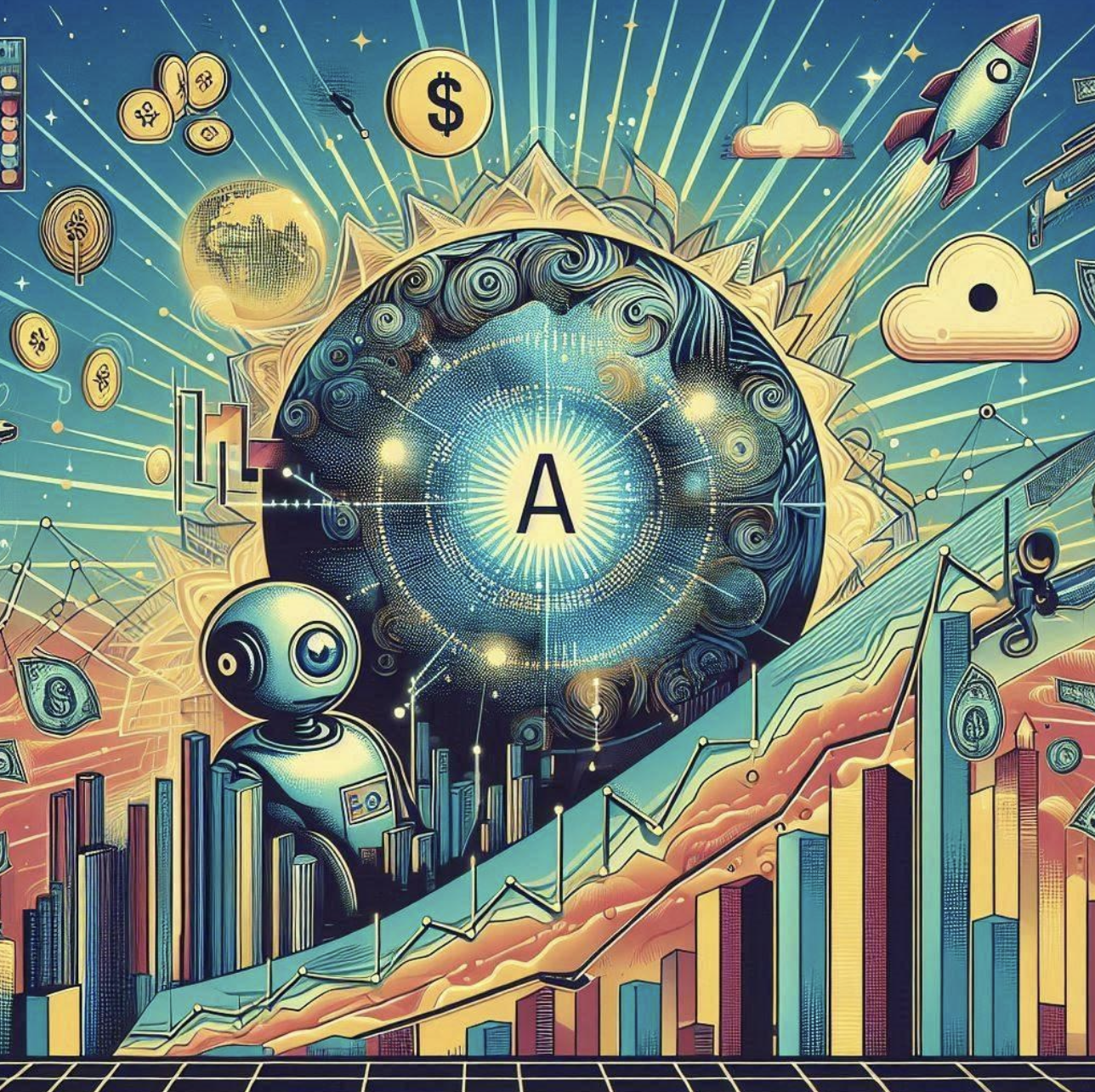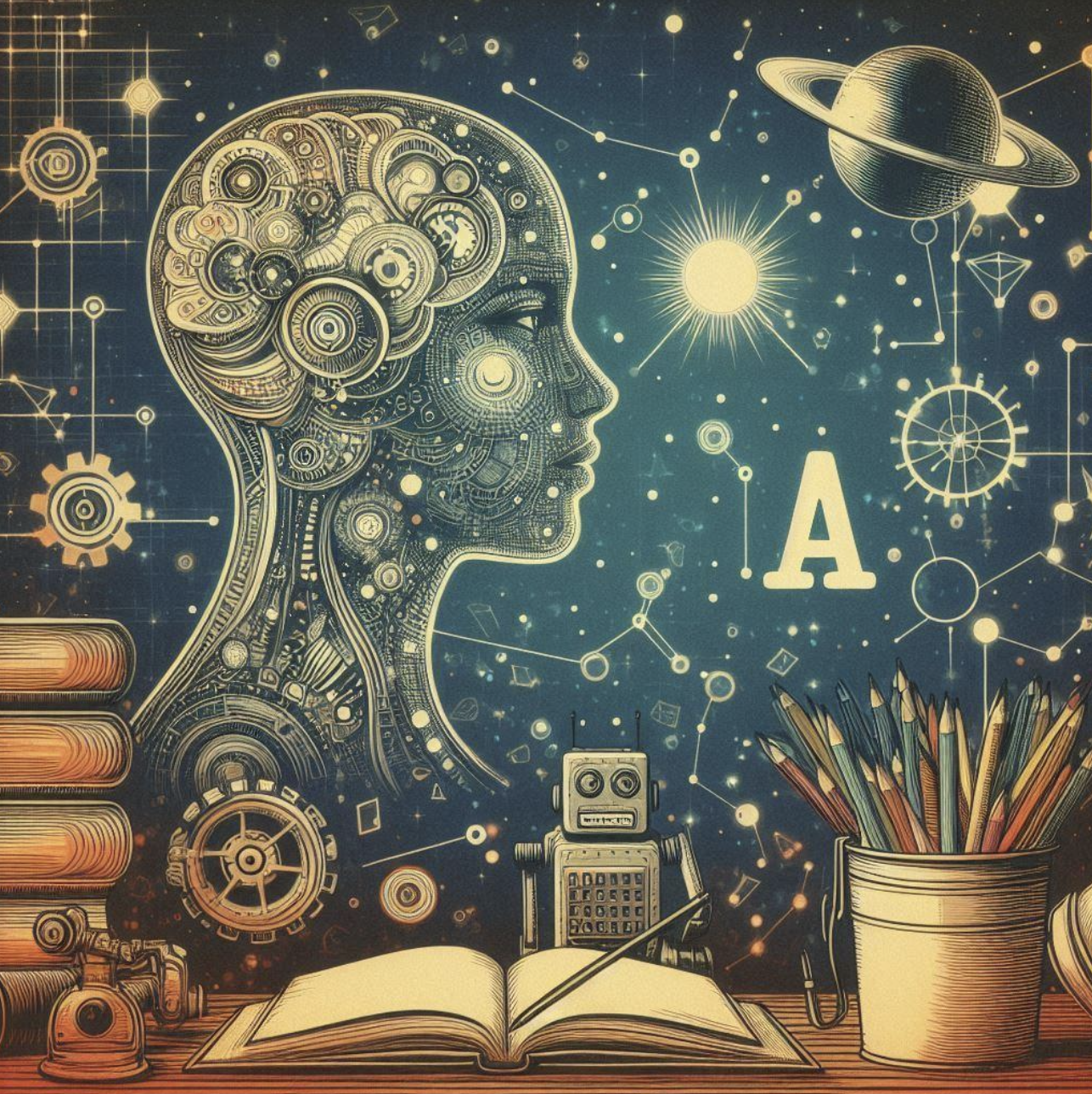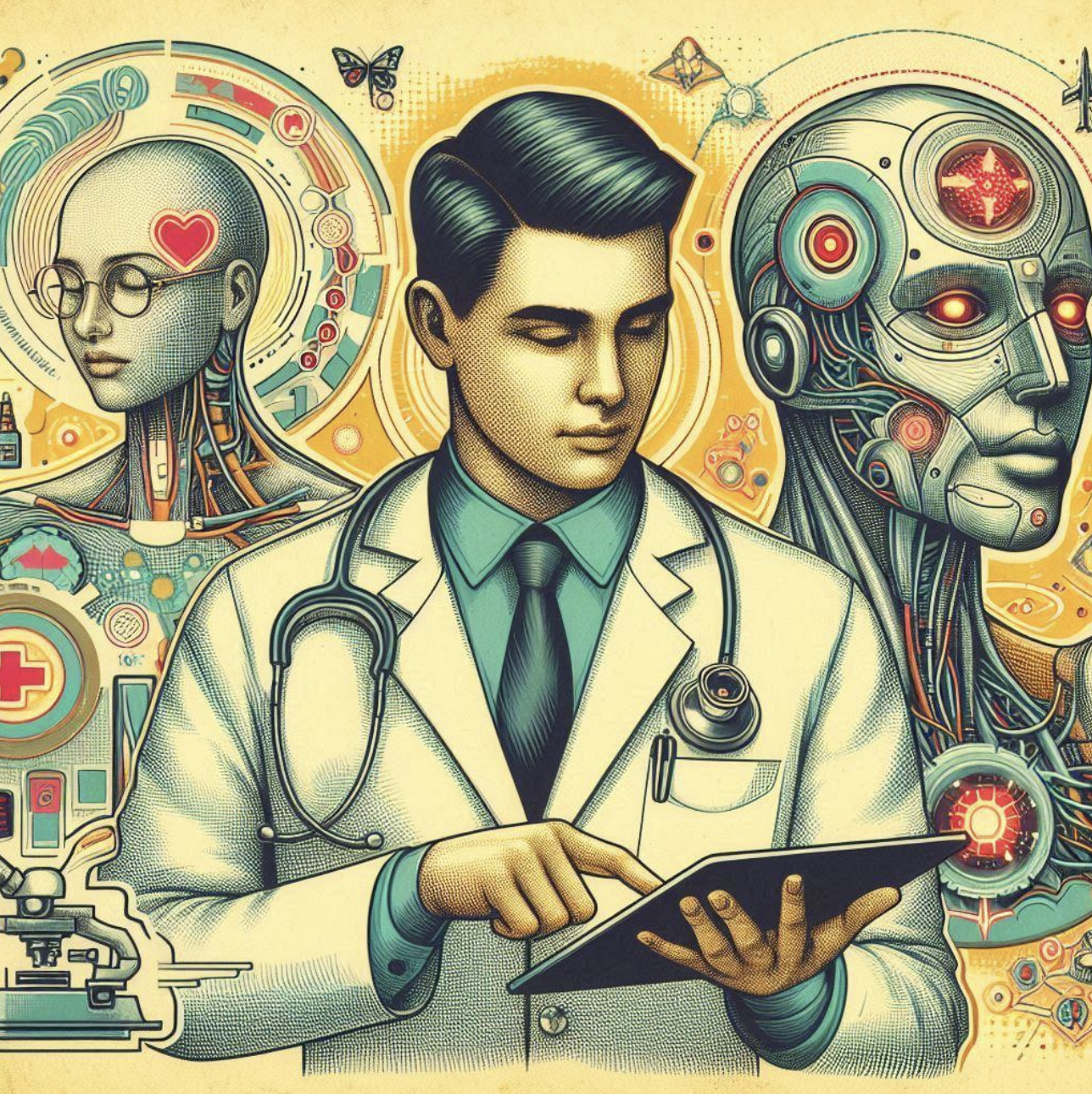AI Utopia - Arguments in Favor of Artificial Intelligence
written by Tamás Fodor
Stephen Hawking: AI will be ‘either best or worst thing’ for humanity
How can artificial intelligence make the world better? The rapid fundamentally transforming our relationship with work, learning, and everyday life. As we stand on the threshold of this transformation, it is crucial to understand how these changes will impact career opportunities, education, and the very nature of work itself. In this article, I have compiled key positive expert opinions, perspectives, and predictions.
The development of artificial intelligence could bring radical changes for humanity, but future success is not guaranteed. According to Ray Kurzweil, AI might be able to eliminate physical and biological limitations, making technology’s benefits accessible to everyone. Dario Amodei adds that AI could not only bring breakthroughs in healthcare and poverty reduction but also play a role in strengthening democracy and human rights if properly directed.
If we succeed in properly directing AI’s development, a world could emerge where diseases are conquerable, poverty can be reduced, and individual freedoms are strengthened. This could be a future that brings not only technological breakthroughs but also realizes fundamental human values. AI could therefore be not just a tool for progress, but for creating a world where human rights and democracy truly prevail.
This is a two-part series, with the second part examining the risks and challenges ahead. What challenges must we face, and what do we endanger if we ignore the warnings? But let me begin with a positive vision and opportunities.
I’ll start with a positive vision of the future and opportunities.
Safety

The safe steering and regulation of artificial intelligence (AI) is crucial for humanity’s future. According to Andrew Ng, a leading AI expert, AI not only offers solutions to humanity’s greatest problems – such as poverty and disease – but with careful planning and proper regulation, it can be safely integrated into our daily lives. Ng cites the introduction of electricity as an example: just as we learned to use electricity safely and harness its potential, we will be able to make AI increasingly secure [https://www.ted.com/talks/andrew_ng_aiisntthe____problemitsthe____solution].
Dario Amodei, founder and CEO of Anthropic (Claude AI), laid out his views on artificial intelligence’s potential possibilities in an extensive essay titled “Machines of Loving Grace” presenting a positive vision. He believes advanced AI technologies provide an opportunity for democracies to gain advantage on the global stage, potentially strengthening peace and human rights. He argues that a broad coalition of democracies could deploy AI in ways that promote freedom and equality. AI could not only reduce economic and social inequalities but also contribute to creating a fairer and more transparent legal system [https://darioamodei.com/machines-of-loving-grace].
Both experts agree that proper design, regulation, and development of AI will not only make the world safer but also open up immense opportunities for humanity. AI could democratize knowledge, improve quality of life, and promote global cooperation.
While Amodei’s writing focuses specifically on presenting a positive vision, his essay is particularly special because in his public appearances, he places enormous emphasis on minimizing potential risks and the importance of regulation. Many criticize him for this approach, but in his opinion, enough people are expressing unilaterally positive views about AI’s possibilities, decorated with numerous grandiose sci-fi elements. This narrative is strengthened not only by messianic AI company leaders and prophets but also by market processes and investors. However, Amodei believes that now is the time to define the principles that will ensure the scales tip toward positive outcomes in the future, rather than toward humanity’s collapse.
Economy and Employment
According to Dario Amodei, artificial intelligence’s impact on employment will not merely cause the disappearance of known positions, sectors, and jobs, but rather trigger a complex transformation of the labor market. Positions most at risk are those requiring routine tasks and well-defined, low-level decision-making, such as data entry and entry-level customer service roles – areas already under pressure from automation. Conversely, many professions won’t disappear but evolve: healthcare professionals, for example, will spend less time on routine diagnoses and more on high-level patient care.
AI also creates new career opportunities, such as AI-Human Collaboration Specialists, who optimize workflows between AI systems and human teams. The role of ethics experts is also becoming more valuable as organizations deal with the consequences of AI applications. At Anthropic, philosophers are currently working on developing Claude AI’s personality – numerous complex aspects must be considered when answering a question, which might seem trivial or even unnoticeable to us humans, but racism, disinformation, and security issues are quite difficult to define in machine learning.

The traditional 8-hour workday is becoming increasingly obsolete as AI enables more flexible work. Companies can increasingly focus on results and performance, which could lead to shorter work weeks and better work-life balance. The concept of Universal Basic Income (UBI) is also gaining more attention as a possible response to labor market changes caused by AI.
Amodei believes that AI development therefore brings not just challenges but also opportunities in the world of work. Through proper planning and regulation, artificial intelligence can contribute to economic growth and improve job quality. In the future, technology can not only make work more efficient but also help make services more accessible to everyone and improve quality of life.
Ray Kurzweil, one of the pioneering experts in artificial intelligence, published a comprehensive analysis of AI’s expected impacts in The Economist. Kurzweil predicted in 1999 that by 2029, AI would surpass human capabilities in every cognitive task – this prediction, which seemed radical at the time, has now become widely accepted among experts. In his writing, Kurzweil identifies several key areas where AI will fundamentally change not only the digital but also the physical world. In the energy sector, AI is already revolutionizing solar energy and battery technologies. In manufacturing, AI will significantly reduce energy, labor, and raw material costs, while computational progress continues to remain exponential [https://www.economist.com/byinvitation/2024/06/17/ray-kurzweil-on-how-ai-will-transform-the-physical-world].
Education

A recent World Economic Forum (WEF) report argues for artificial intelligence’s positive impact on education based on five initiatives. According to the organization, there is particularly great potential in reducing educational inequalities, as currently 220 million children are not participating in educational systems, and 70% of 10-year-olds in developing countries cannot read simple sentences – according to Laura Frigenti, CEO of the Global Partnership for Education organization [https://www.weforum.org/stories/2024/05/ways-ai-can-benefit-education/].
The report highlights five successful initiatives:
- In South Korea, AI-based digital textbooks willbe introduced from 2025 to reduce inequalities.
- In the United Arab Emirates, personalized AI tutors are being used, which has already resulted in a 10% performance improvement.
- UNICEF is developing AI-based digital textbooks for children with disabilities.
- In Mali, a startup (Kabakoo) supports youth training with an AI mentor, which resulted in a 44% income increase for participants within six months.
- In Brazil, the AI-based Letrus program significantly improved students’ writing skills.
According to Dario Amodei, skills needed for future success are rapidly evolving. Technical competence is becoming increasingly important, but not in the way many think. Instead of everyone needing to become a programmer, emphasis should primarily be placed on understanding AI’s capabilities and limitations, creativity, and effective use of digital tools.
Surprisingly, human skills are becoming more important than ever. Critical thinking, emotional intelligence, and creativity are abilities that AI currently finds difficult to imitate. The ability to solve complex problems, communicate effectively, and adapt to new situations is becoming increasingly valuable. These skills are not merely supplements to technical knowledge – they are fundamental to success in an AI-supported workplace.
Medicine
Experts unanimously agree that one of AI’s greatest positive impacts is on various areas of medicine. Numerous practical examples already show the impact of machine learning, automation, neural networks, and data research on healthcare.
Sir Demis Hassabis is a British artificial intelligence researcher and entrepreneur. He is CEO and co-founder of Google DeepMind and Isomorphic Labs, and an AI advisor to the British government. Demis Hassabis and DeepMind’s story well exemplifies AI’s practical usefulness in science. After their 2016 success in the game of Go, the company turned toward healthcareresearch and offered a solution to a long-standing problem: protein structure prediction. Their AlphaFold system has mapped over 200 million protein structures since 2020, which they made freely available to researchers. This database is already being successfully used for environmental purposes and developing vaccines against rare, less-researched diseases. According to Hassabis, this is just the beginning.

Ray Kurzweil also believes the most significant changes are expected in medicine. AI enables complex simulation of biological processes, and we already find AI-designed drugs in clinical testing phases. According to Kurzweil’s rather optimistic prediction, between 2029 and 2035, we might reach a point where the annualgbóhó8, life expectancy increase exceeds one year, which could effectively mean halting the aging process.
Regarding the impact on medical technology jobs, Andrew Ng illustrated through the example of radiology. AI has transformed rather than eliminated it – AI isn’t replacing radiologists, but radiologists using AI may outcompete those who don’t.
Eric Topol, professor at the Scripps Research Institute, presented the current state and future of AI healthcare applications in a comprehensive lecture. According to him, AI-based imaging systems can already notice things that the human eye cannot see. Although nearly 1,000 FDA-approved AI models exist, most aren’t yet in practical use. However, new systems could bring revolutionary changes: they can learn independently and process many types of data. Topol believes AI won’t replace doctors but can help reduce administrative burdens and improve the quality of patient care. In the future, AI might enable early detection of certain diseases, such as pancreatic cancer, years before symptoms appear [https://nihrecord.nih.gov/2024/11/22/topol-discusses-potential-ai-transform-medicine].
According to Dario Amodei, significant progress has been made in recent years: while previously AI models could only work with labeled datasets – which consumed enormous human resources – they are now capable of independent learning. He also mentions practical results: a Swedish study of 80,000 people showed that AI-supported mammography proved more effective in detecting cancer than the participating doctors. AI analysis of retinal images can already predict the risk of numerous diseases, from diabetes to Alzheimer’s.
Many biologists are skeptical about AI’s usefulness, but Amodei believes this is a misconception: AI should not be viewed as a simple data analysis tool but as a “virtual biologist” capable of directing and accelerating the entire research process.
History shows that breakthrough biological discoveries – such as new microscopy techniques – typically come from the work of a small number of particularly talented researchers. These discoveries often come decades after they would have been technically possible: for example, the mechanism underlying CRISPR was known in the ’80s, yet it took 25 years to realize it could be used for gene editing. AI could dramatically accelerate this process.
The expected results could be revolutionary. Most infectious diseases could become preventable and treatable as mRNA vaccine technology advances. In cancer, a 95% reduction in mortality might be achievable with personalized, genome-based treatments. Most genetic diseases could become preventable with advanced embryo screening, while existing cases could be treated with improved CRISPR technology. Alzheimer’s disease might finally be understood and preventable, although reversing existing damage may remain challenging. Like Topol, he also addresses life expectancy, suggesting that by slowing the aging process, human lifespan could increase to 150 years – which, although seeming radical, is not a proportionally bigger jump than what the 20th century already achieved.
This could usher in a new era of “biological freedom, ” where people will have much greater control over their own bodies. Weight, physical appearance, reproduction, and other biological processes could come under individual control. If all this is achieved in the next 7-12 years, it would represent an unprecedented humanitarian breakthrough, essentially eliminating diseases and limitations that have haunted humanity for millennia.
The development of artificial intelligence could bring radical changes for humanity, but future success is not guaranteed. According to Ray Kurzweil, AI might be able to eliminate physical and biological limitations, making technology’s benefits accessible to everyone. Dario Amodei adds that AI could not only bring breakthroughs in healthcare and poverty reduction but also play a role in strengthening democracy and human rights if properly directed.
Link to AI Dystopia

